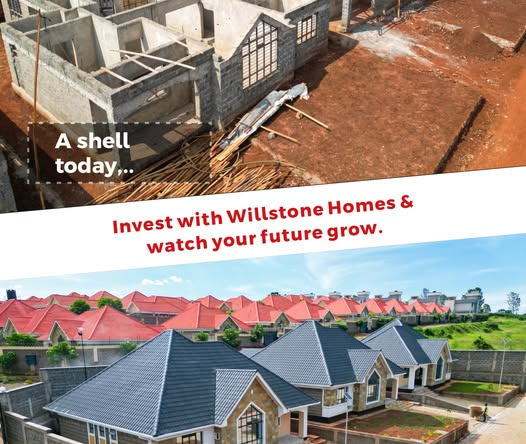Smart Solutions Transforming Kenya’s Real Estate Landscape are redefining how properties are designed, marketed, and managed. As technology continues to evolve, Kenya’s real estate sector is embracing innovative tools and practices to address longstanding challenges such as affordability, transparency, and sustainability. From smart homes and virtual property tours to green building practices and digital transactions, these advancements are creating a more efficient, inclusive, and modern property market. This article explores how technology is driving this transformation, offering insights into the trends shaping the future of real estate in Kenya.
The Rise of Proptech in Kenya
The integration of technology into real estate, often referred to as proptech, is transforming the sector in unprecedented ways. In Kenya, proptech is streamlining processes, improving customer experiences, and creating new opportunities for investors and homeowners alike. Digital platforms now allow buyers and renters to browse property listings, view high-quality images, and even take virtual tours—all from the comfort of their homes. This shift has significantly reduced the time and resources required for property searches.
According to a 2023 report by a leading consultancy firm, Kenya’s proptech market is growing at an annual rate of 20%, fueled by increasing internet penetration and smartphone usage. This growth underscores the sector’s potential to revolutionize real estate transactions and management, making it more accessible and efficient for all stakeholders.
Read also: Blockchain and the Real Estate Sector in Kenya
Smart Homes: The Future of Living
One of the most visible impacts of technology in Kenya’s real estate sector is the rise of smart homes. These homes are equipped with Internet of Things (IoT) devices that enable automated systems for lighting, security, energy management, and entertainment. Features like remote-controlled lighting, smart thermostats, and advanced security systems are becoming key selling points for modern properties, particularly in urban areas like Nairobi.
Smart homes offer residents unparalleled convenience, security, and energy efficiency. For example, automated lighting systems adjust based on natural light levels, while smart thermostats optimize energy usage, reducing utility costs. Security systems equipped with IoT-enabled cameras and sensors provide real-time alerts, ensuring peace of mind for homeowners.
As the cost of IoT devices continues to decline and internet connectivity improves, smart home technology is expected to become more accessible to a broader audience. This trend aligns with the growing demand for modern, tech-driven living spaces, positioning smart homes as a cornerstone of Kenya’s evolving real estate landscape.
Virtual Property Tours and Online Transactions
The COVID-19 pandemic accelerated the adoption of virtual property tours and online transactions in Kenya. Buyers and renters can now explore properties in 3D, navigating through rooms and amenities without leaving their homes. This innovation has not only made property searches more convenient but also expanded the reach of real estate listings to a global audience.
Online transactions have also become more common, with digital payment solutions facilitating seamless and secure payments. This shift towards digitalization has reduced the risk of fraud and delays in property transactions, making the process faster and more transparent.
Read also: Kenya Real Estate: How PropTech is Revolutionizing the Property Market
Affordable Housing and Technology
Kenya’s affordable housing deficit, estimated at over 2 million units, remains a pressing issue. However, technology is playing a crucial role in addressing this challenge. The government’s Affordable Housing Program, a key pillar of the Big Four Agenda, is leveraging technology to streamline construction processes and reduce costs.
Innovative construction techniques, such as modular construction and 3D printing, are being explored to build homes faster and more affordably. These methods not only reduce construction time but also minimize waste, making them more sustainable. Additionally, digital platforms are connecting buyers with affordable housing projects, ensuring transparency and accessibility.
Sustainable Real Estate Practices
Sustainability is another area where technology is making a significant impact. Developers are increasingly adopting green building practices to reduce environmental impact and meet the demands of eco-conscious buyers. The use of solar energy, rainwater harvesting systems, and energy-efficient materials is becoming commonplace in new projects.
Green buildings not only reduce carbon footprints but also offer long-term cost savings for occupants through lower utility bills. This focus on sustainability is aligning Kenya’s real estate sector with global trends, positioning the country as a leader in eco-friendly development.
Challenges and Opportunities
While technology offers immense potential, its adoption in Kenya’s real estate sector is not without challenges. Technological barriers, such as the need for robust IT infrastructure and skilled personnel, can hinder implementation. Regulatory hurdles also exist, as current laws may not fully accommodate digital transactions.
However, these challenges present opportunities for collaboration between the government, private sector, and academia. By investing in infrastructure, updating regulations, and promoting digital literacy, Kenya can fully harness the potential of technology in real estate.
The Future of Real Estate in Kenya
The future of Kenya’s real estate sector is undeniably digital. As technology continues to evolve, we can expect even more innovative solutions to emerge. Artificial intelligence (AI) and big data analytics are poised to play a significant role in property valuation, market analysis, and customer insights. Additionally, the integration of blockchain technology could further enhance transparency and security in property transactions.
The government’s commitment to digital transformation, coupled with the private sector’s innovation, positions Kenya as a leader in proptech adoption in Africa. By embracing smart solutions, Kenya can create a more efficient, transparent, and inclusive real estate market that benefits all stakeholders.
Smart Solutions Transforming Kenya’s Real Estate Landscape are paving the way for a more dynamic and efficient property market. By leveraging technologies such as IoT, virtual tours, and sustainable building practices, the sector is addressing critical challenges and unlocking new opportunities for buyers, sellers, and investors. While hurdles like infrastructure gaps and regulatory frameworks remain, the potential for growth is undeniable. As Kenya continues to embrace these innovations, the real estate sector is poised to become more transparent, accessible, and sustainable. The future of real estate in Kenya is smart, and the time to embrace these changes is now.
Read also: Identifying High-Value Properties in Kenya’s Real Estate Market





